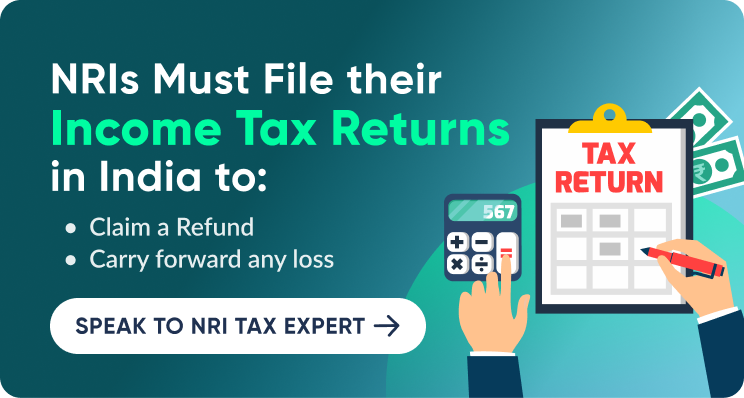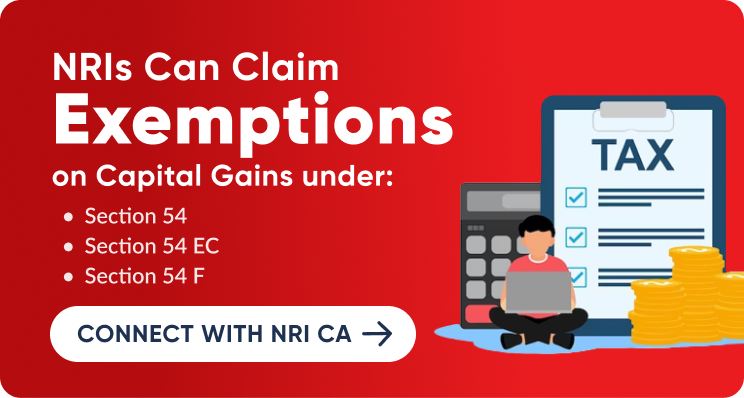Non-Resident Indians or NRIs can invest in mutual funds in India via an NRE or NRO account at any bank in India. However, only few fund houses allow mutual fund investment online from NRIs based out of the US and Canada, while some others accept investment in an offline mode with a declaration the investor was present in India at the time of his/ her first investment. Read more about mutual funds for NRI from USA/ Canada. Capital gains from investment in Indian mutual funds is taxed in the US. Rules with regard to US tax on Indian mutual funds are complex.
Before we jump to the US tax on Indian mutual funds, let’s understand when an individual is considered a US resident to comply with tax requirements.

When is an NRI Considered a US Resident for Tax Purposes
It depends on the number of days an individual stays in the US – 183 days is the minimum requirement. You would be considered as a US tax resident if the total of all days you stayed in the US in the current year plus one-third of all days in the previous year and one-sixth of all days in the year before are more than 183 days. Green card holders are always treated as residents to comply with tax requirements.

US Tax on Capital Gains from Indian Mutual Funds
Income generated by Indian mutual funds in the form of interest, capital gains and dividends is taxed in the US under Passive Foreign Investment Company (PFIC), a law introduced to prevent US persons from deferring tax on passive income earned through non-US corporations. The income generated from investment in mutual funds under PFIC can be taxed via the ‘excess distribution method’ (default option), ‘Qualified Electing Fund’ route and ‘Mark to Market reporting’.
As per the Qualified Electing Fund, the appreciation in the appreciation amount, even unrealized, is taxable as capital gains each year. You need to choose this option in the first year of filing returns in the US. After that, it will be difficult to opt for this option.

In Mark to Market (M2M) reporting, the difference between the fair market value of your mutual funds at the end of the year and the adjusted cost each year is considered for computation of ‘ordinary income’ that is taxed as per your income slab rates.
If you don’t pick any of the above options, the default method will be applicable, which is extremely punitive. The capital gains on sale of mutual funds could be allocated over the entire holding period and taxed each year at the highest tax rate of that year. Moreover, if the tax was not paid impervious years, it also charges an interest penalty.
Applicable Tax Rate
In the US, income is taxed at two levels – the federal level and state level. Federal tax is levied on the ordinary income at rates applicable to the investors, ranging from 10% to 37%. At the state level, tax may vary from 0 to 13.3%.
Tax on long term capital gains (LTCG) and short-term capital gains (STCG) vary depending on the holding period of one year. Short-term capital gains are considered as ordinary income and taxed at rate applicable to the individual, while long-term capital gains are taxed at either 0, 15 or 20% tax rate.
State level taxes are levied over and above the federal income tax and are determined on a case-to-case basis. States, like California, don’t follow the Federal law of PFIC. The income is not considered and tax is not levied until a distribution is received or a disposition has occurred. An extra net investment income tax at the rate of 3.8% will be applicable if your gross income exceeds a certain threshold.

There are various ways for NRIs to save income tax in India, but due to a complicated tax system and recurrent amendments, understanding tax laws can be confusing, especially for NRIs. NRIs may miss claiming deductions and other benefits. At SBNRI, we understand this struggle. You can download SBNRI App to connect with our NRI Tax Experts to know more about new TRC, TDS/ TCS rules for NRIs. You will also get end-to-end assistance related to NRI tax filing.
SBNRI will also help you get a lower TDS Certificate to reduce tax payable. You can also click on the button below to ask any questions. Visit our blog and YouTube Channel for more details.



